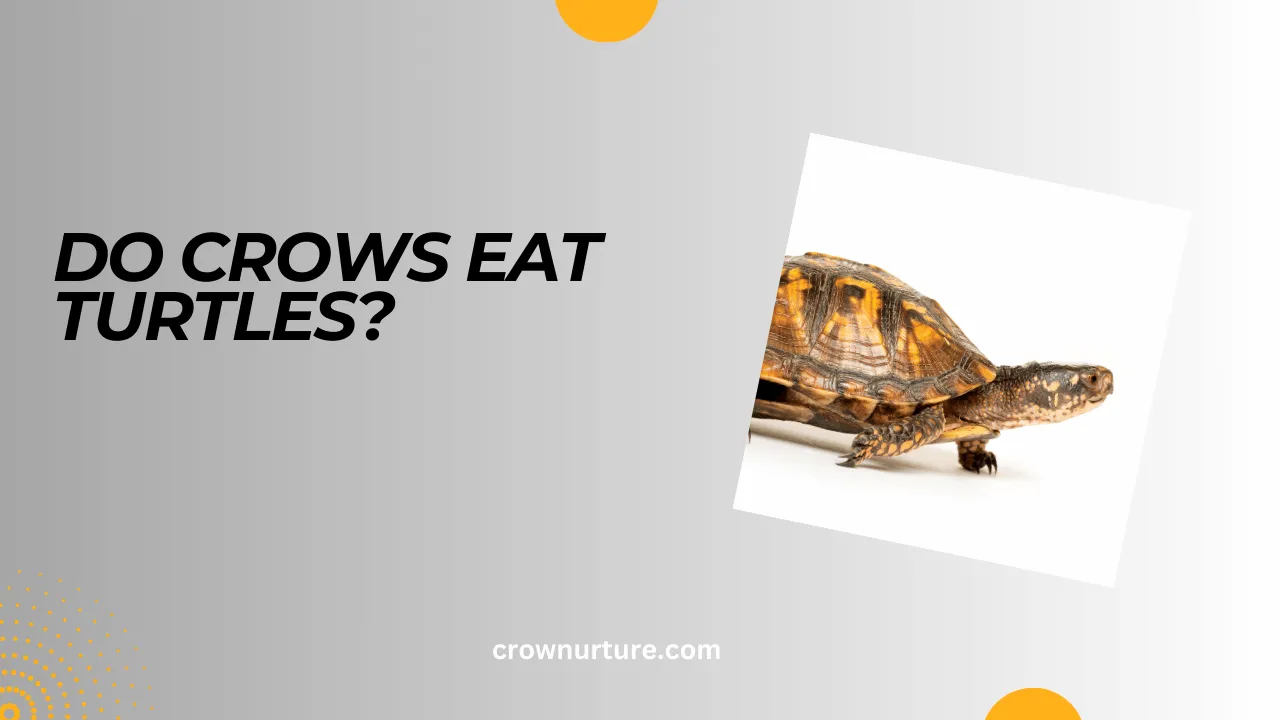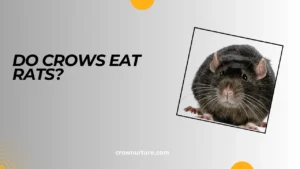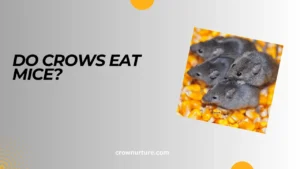Crows are nature’s masterminds, celebrated for their intelligence and adaptability. These birds are omnivorous opportunists, meaning they eat almost anything they can find or catch. But when it comes to turtles, a creature equipped with its own robust defenses, the question arises: Do crows eat turtles?
This question is more than just about bird and reptile dynamics—it opens a window into the survival strategies of two vastly different species. It raises fascinating questions about predator-prey interactions, the limits of crow ingenuity, and how turtles’ ancient defenses stand up to modern avian tactics.
If you’ve ever wondered whether the sharp-beaked crow could outsmart the hard-shelled turtle, this article is for you. From understanding the crow’s diet to exploring turtle defense mechanisms, we’ll uncover the facts and delve into the intriguing possibilities of this unusual relationship.
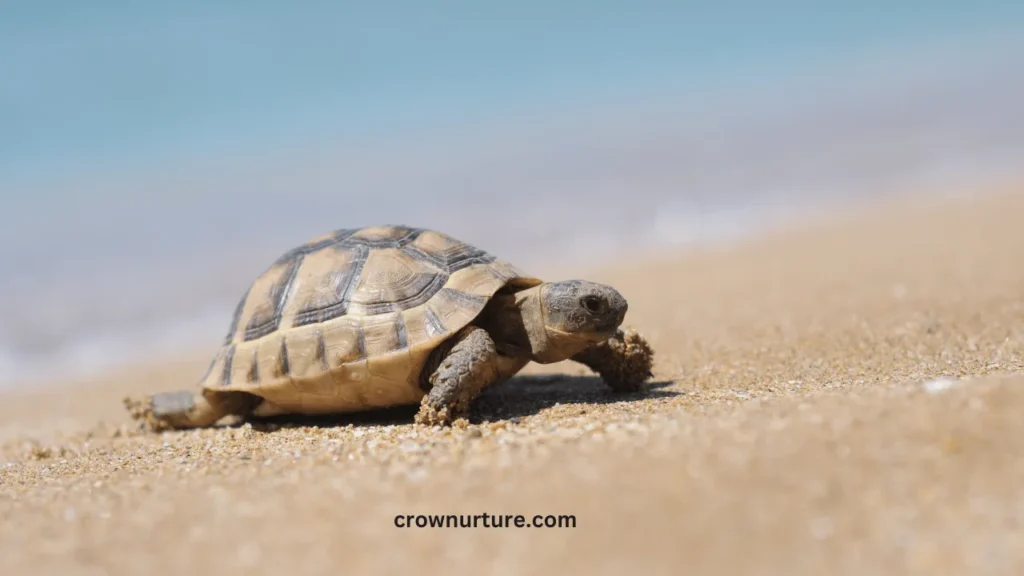
Contents
1. The Crow’s Diet: A Versatile Eater
Crows are known for their omnivorous nature, meaning they consume both plant-based and animal-based food. Their diet ranges from insects and seeds to fruits, small animals, and even carrion.
They are highly adaptable feeders, capable of surviving in diverse habitats, including forests, urban areas, and coastal regions. This adaptability allows them to take advantage of almost any available food source.
Occasionally, crows are observed feeding on small vertebrates, including amphibians or reptiles. This raises the question of whether turtles, particularly hatchlings, might also become part of their diet.
2. The Crow’s Hunting Techniques
Crows are opportunistic feeders, relying on their keen observation skills to identify and exploit food opportunities. They often target easy or vulnerable prey that requires minimal effort to capture.
Their sharp eyesight allows them to locate small prey from a distance. Combined with their intelligence, they are skilled at solving problems and using tools to access food.
Crows also exhibit social learning, meaning they can learn hunting strategies by observing other crows. This allows them to adapt their tactics to new situations, potentially including attempts to prey on small turtles.
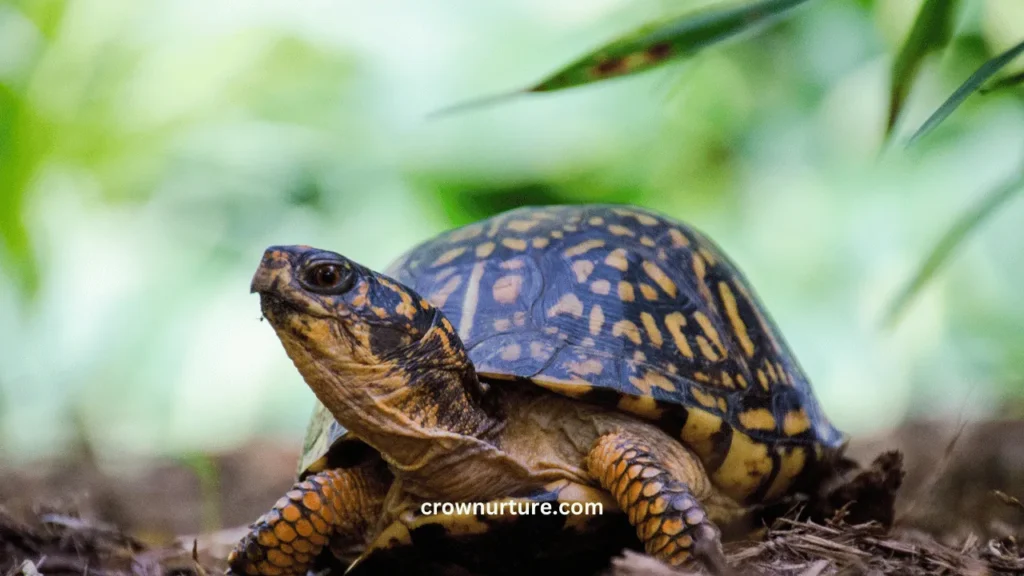
3. The Turtle’s Defenses
Turtles have evolved remarkable defense mechanisms over millions of years. Their most notable protection is their hard shell, which serves as a shield against predators, including birds like crows.
Many turtles can retract their heads and limbs into their shells, making it difficult for predators to cause harm. This ability is especially effective against birds with small beaks or limited strength.
Additionally, turtles’ aquatic habitats often serve as a natural refuge. Being underwater makes it harder for aerial predators like crows to reach them.
4. The Likelihood of Crow-Turtle Interactions
The significant size disparity between crows and most turtle species makes it unlikely for crows to target adult turtles. However, hatchlings or smaller species could be vulnerable due to their softer shells and limited mobility.
Turtles’ instinctive behavior to retreat when threatened also reduces the chances of successful predation by crows. This response is a powerful deterrent against many would-be predators.
Crows’ hunting strategies, while clever, are better suited to more accessible prey. For turtles, the combination of their physical defenses and habitat often puts them out of reach of crows.
5. Scientific Evidence and Anecdotal Reports
Scientific studies on direct crow-turtle interactions are limited, but anecdotal evidence suggests that crows occasionally target turtle hatchlings. Birdwatchers have observed crows scavenging on eggs or hatchlings in nesting areas.
Reports of crow predation on baby turtles are more common near beaches where sea turtles hatch, as these environments expose vulnerable hatchlings to multiple predators, including birds.
While these cases exist, they are relatively rare and do not represent a significant threat to turtle populations compared to other environmental challenges.
Conclusion
While crows are incredibly resourceful predators, the physical and behavioral defenses of turtles make them unlikely targets for these birds. Crows may opportunistically prey on hatchlings or scavenge on turtle eggs, but such occurrences are rare and depend on specific circumstances.
Turtles’ evolutionary defenses, including their hard shells and aquatic habitats, provide strong protection against crows and other predators. Meanwhile, crows tend to focus on food sources that are easier to access and require less effort to consume.
This fascinating interaction showcases the balance of nature, where intelligence meets instinct, and ancient defenses face modern challenges. While not a common occurrence, the possibility of crow-turtle encounters highlights the complexity of predator-prey relationships in the animal kingdom.
FAQs
1. Do crows eat baby turtles?
Yes, crows may prey on baby turtles, especially hatchlings, as they are smaller and lack fully developed defenses.
2. Can crows break a turtle’s shell?
No, crows cannot break a turtle’s hard shell. Their beaks are not strong enough to penetrate this robust defense.
3. Do crows eat turtle eggs?
Yes, crows may scavenge turtle eggs if they find nests. This behavior is more common near turtle nesting sites.
4. Are turtles safe from crows in the water?
Mostly, yes. Turtles are safer in the water, as crows are not equipped to hunt in aquatic environments.
5. Do crows hunt turtles regularly?
No, hunting turtles is not a regular behavior for crows. They typically target easier and more accessible prey.
6. Can turtles defend themselves against crows?
Yes, turtles can retract into their shells, making it nearly impossible for crows to harm them.

